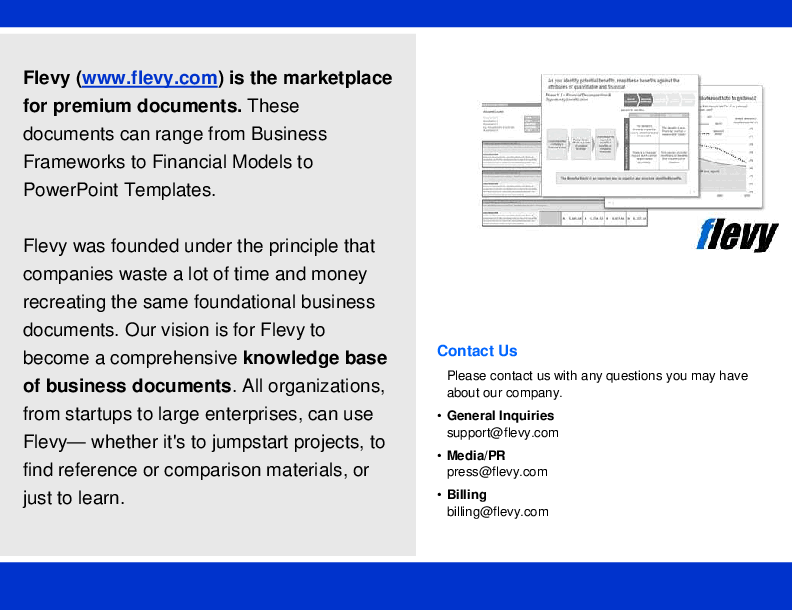BENEFITS OF THIS POWERPOINT DOCUMENT
- Introduction to the concepts of Lean
- Review Lean application in an office environment
- Insight into making Lean a success
LEAN PPT DESCRIPTION
The objectives of this document are:
• Introduce to the concepts of Lean
• Review how Lean can be applied in an office environment
• Provide some insight into making Lean a success
• Highlight further resources for future reading/reference
Got a question about the product? Email us at support@flevy.com or ask the author directly by using the "Ask the Author a Question" form. If you cannot view the preview above this document description, go here to view the large preview instead.
Source: Best Practices in Lean PowerPoint Slides: Introduction to Lean PowerPoint (PPT) Presentation Slide Deck, P-Square Partners
LEAN PPT SLIDES








